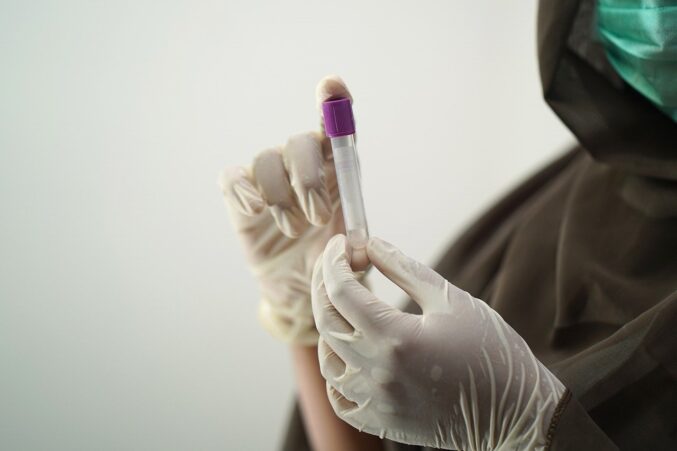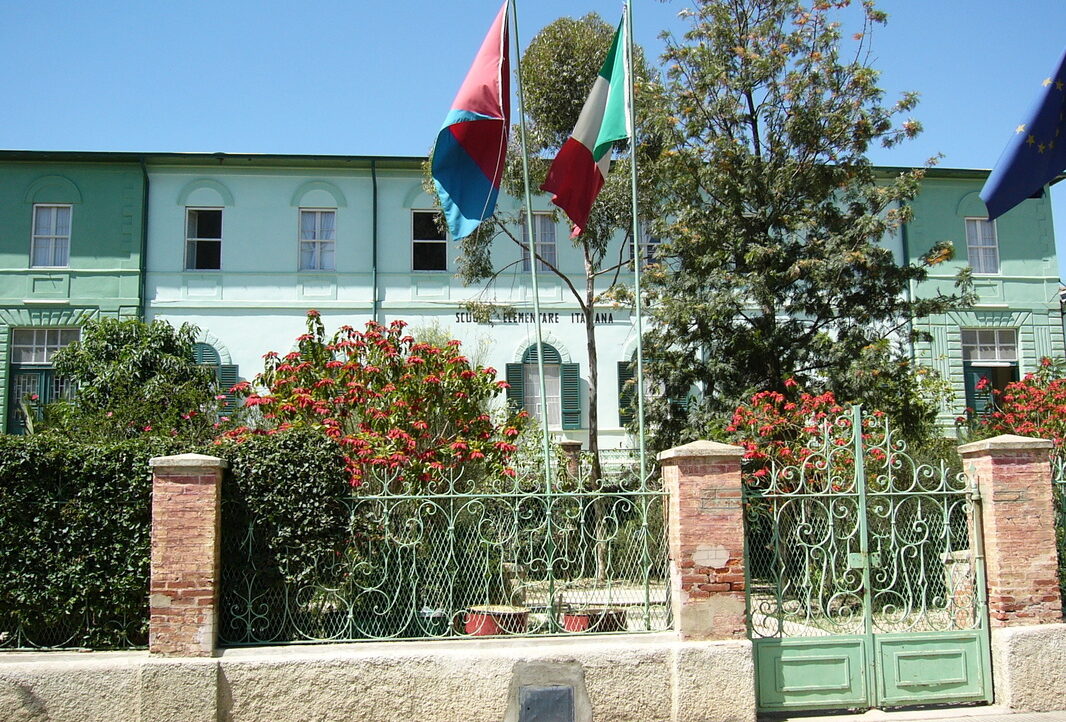“La crisi demografica dell’Ue deve essere considerata con la stessa attenzione riservata alle transizioni digitali e verdi. I decisori politici devono riconoscere la famiglia come motore principale della ripresa sociale, economica e ambientale”. Questa la richiesta alle istituzioni europee e ai governi nazionali che arriva dalla Federazione delle associazioni famigliari cattoliche (Fafce) in una Risoluzione adottata nella recente riunione del Consiglio direttivo (Strasburgo, 25-27 ottobre 2021). Nel documento si sostiene che “le politiche pubbliche saranno sostenibili solo se le famiglie saranno riconosciute e valorizzate come risorsa di primaria importanza”, nel pieno rispetto della “libertà delle famiglie di perseguire, nelle migliori condizioni e senza ostacoli, la loro gioiosa responsabilità di prendersi cura dello sviluppo integrale dei propri figli e in generale della propria comunità, in un dialogo positivo tra generazioni”. La riunione è stata occasione di una serie di incontri e confronti tra cui una conferenza di alto livello su “ecologia della famiglia e sviluppo integrale”, in collaborazione con l’Unione mondiale delle organizzazioni femminili cattoliche (Wucwo) e la Missione permanente della Santa Sede presso il Consiglio d’Europa. Positivo il bilancio del presidente Vincenzo Bassi dei giorni strasburghesi in cui “i rappresentanti delle maggiori associazioni familiari di ispirazione cristiana d’Europa hanno potuto finalmente ritrovarsi di persona”. Per Bassi le associazioni familiari “sono uno strumento per contrastare la solitudine, la vera malattia dei nostri tempi”.
domenica, ottobre 31, 2021
sabato, ottobre 30, 2021
Irish NGOs target true human rights ahead of UN meeting
Ireland, like almost every country in the world, appears on a regular basis before UN committees to give an account of how well it is meeting its various human rights commitments. Those committees have often exceeded their briefs by demanding Ireland introduce abortion. We have done that now, so the next step is to pressure us into making the law even more permissive.
The way these things work is that local NGOs inform like-minded people on the committees of the changes they want in their countries and the committees then lend their weight to them. (A briefing note we issued a few years ago deals with this topic). The NGOs are frequently pro-choice and very secular.
Ireland is to appear before the UN Human Rights Council for one its ‘periodic reviews’ on November 10, and true to the normal pattern, a number of Irish organisations are pushing UN Human Rights Council to recommend a more permissive abortion law in Ireland.
The Iona Institute, along with the Pro-Life Campaign, signed up to the submission from Alliance Defending Freedom. The document focuses on freedom of conscience, parental rights and end of life matters.
Other submissions cover a range of topics, such as refugee rights or racism, but some Irish NGOs are using this opportunity to push their agenda and to criticise the current abortion legislation for being too restrictive.
For instance, the Abortion Rights Campaign and other pro-choice groups recommend abolishing conscientious objection, removing the 12-week limit for abortion-on-demand, removing the three-day waiting period and decriminalising abortion in all circumstances.
There is no UN treaty or convention that would justify such demands and, if accepted, these recommendations would make the Irish abortion legislation among the most extreme in the world.
They also want to close what they call “deceptive rogue agencies”, a derogative expression referring to pro-life services – such as Gianna Care – that offer alternatives to abortion and help mothers in need.
Amnesty International want to extend abortion for cases of foetal impairments which are not fatal but only severe. That would include Down Syndrome.
Babies with severe disabilities could be aborted up to birth. The Irish law allows abortion at any stage of the pregnancy – with no time limits- when the baby is expected to die within 28 days, however Amnesty want to allow abortion of severely disabled babies even when they could survive and live for years.
This is clear discrimination as babies with disabilities would be treated differently from those without them. What UN convention could justify this?
A submission by the Irish Council for Civil Liberty, endorsed by the Irish Family Planning Association, the National Women’s Council, and other like-minded groups, want to limit the right-to-protest via exclusion zones outside abortion facilities.
They claim that “ongoing anti-abortion activity … can cause distress, exacerbate existing societal stigmas and pose a serious risk to a range of rights”, and so they are asking to introduce exclusion zones outside abortion providers. They are also calling for the decriminalisation of illegal abortions, which means that abortions performed outside the limit of the law should not be considered a criminal offence. They also want the mandatory three-day waiting period to be removed.
Besides the topic of abortion, another worrying issue is the request to limit the role of religion in Irish education. This can be found in the submissions by Atheist Ireland and the Humanist Association, for instance.
The Universal Periodic Review of the UN Human Rights Council should be the occasion to improve human rights in Ireland and it is astonishing that those groups are asking, instead, for a restriction of rights with regards to conscientious objection, equality for disabled people, religious freedom, education, parental rights, etc. These are all issues widely covered and guaranteed by UN treaties and conventions. Any change in the direction proposed by those Irish groups would be a betrayal of Ireland’s human right commitments and must be opposed.
venerdì, ottobre 29, 2021
mercoledì, ottobre 27, 2021
"In chiesa amavo le sue canzoni" Carboni canta Claudio Chieffo

Continua qui.
sabato, ottobre 23, 2021
Chiusa la scuola italiana di Asmara dopo 118 anni, i locali sono stati riconsegnati
Era la più grande scuola statale all’estero, con una storia di oltre un secolo alle spalle, e formava – anche in lingua italiana – studenti per il 70% eritrei, dalla scuola primaria al liceo.
La mattina del 7 ottobre 2021 la bandiera italiana all’esterno dell’edificio è stata definitivamente ammainata e i locali consegnati al governo eritreo. La cerimonia è avvenuta alla presenza del nuovo Ambasciatore italiano Marco Mancini e del facente funzioni del Ministero della Pubblica Istruzione eritreo Pietros Hailemariam. A nulla era servita la petizione per salvare l’istituto lanciata subito dopo la sospensione delle lezioni, nel settembre 2020.
Le cause di questa chiusura nascono da lontano, ne abbiamo parlato in questo articolo. Sono frutto da un lato della volontà del governo Eritreo, espressione del movimento politico che domina il Paese dalla sua indipendenza nel 1991 con un regime dittatoriale, di chiudere tutte le scuole private e straniere, nazionalizzandole. Dall’altro, dell’inerzia dimostrata dai governi italiani che si sono succeduti, i quali, pur dichiarando il Corno d’Africa come elemento strategico della propria politica estera, non hanno saputo elaborare strategie efficaci per trasformare il triste passato coloniale in un presente e un futuro fatto di una collaborazione culturale ed economica fruttuosa per tutte le parti in gioco.
Continua qui.
lunedì, ottobre 18, 2021
New genetic selection techniques will facilitate eugenics
The genetic selection of human embryos is reaching new levels of sophistication and depravity with the development of a technique called ‘polygenic screening’, based on statistical scores. Eugenics, which is breeding out the ‘defective’, is deepening its grip on our societies.
The new method is a step above current screening processes that can detect conditions like Down Syndrome.
Last year, the embryo of baby girl Aurea was chosen over other embryos who had more chance of developing certain medical conditions in the future, using a “polygenic risk score”.
The screening of human embryos artificially created in laboratory through IVF is quite common.
Tests are offered for genetic or chromosomal abnormalities, such as Down Syndrome, and only the unaffected embryos are implanted in the womb, while the other are destroyed.
When similar screening tests are performed during pregnancies, they generally lead to abortion.
This is a clear form of human selection on the basis of health characteristics, also known as eugenics.
So far, those tests were focusing on diseases caused by a single gene, but some conditions are triggered by the interaction of many genes.
A new technique based on “polygenic risk scores” (PRS), which has been employed for the first time with success, tests the presence of many genes.
In simple words, the new test analyses the gene-sequency of an individual and estimates the probability that some conditions will develop later in life.
As the link between some genes and certain medical conditions is only probabilistic, these new techniques are based on statistical data and they have only become possible in very recent years with the development of large databases of genetic information.
As it develops, preimplantation genetic testing is likely to be able to predict not only health, but also other characteristics related to our genes, such as intelligence, psychological traits, personality types, learning disabilities, height, etc.
Commissioning couples, but also single individuals, will be able to pick any physical or psychological trait linked to genetic and to ‘order’ their ideal child. In a society where choice is everything, who will stop them?
This is one further step down an extremely unethical path that aims at eliminating imperfect human beings. It is immoral not only because it destroys humans at embryonic stage, but also because it perpetuates the false assumption that some lives are not worth living when they have certain unwanted characteristics.
The defenders of these techniques are quite honest about the eugenicist nature of genetic selection.
Oxford university philosopher Julian Savulescu proposes a “welfarist model” of polygenic scores that select for traits associated with well-being.
He writes: “[Tests] to select against genetic conditions … such as Down Syndrome, are common and are even publicly funded, implying not only assent, but active support for allowing prospective parents to select against these conditions. Selection on the basis of polygenetic scores, if it is well correlated and causally linked to a welfare threshold with important bearing on the future’s child well-being is ethically equivalent to these. Indeed, allowing selection on the basis of only some genetic conditions may be discriminatory. It would be consistent with an anti-eugenic stance to reject all form of selection.”
Savulescu has no problem with eugenics, as long as “there is no broad social goal or coercion employed”.
Do we really need to wait until it becomes imposed by the state before we realise how immoral eugenic?
---
(A shorter version of this article was published here)
martedì, ottobre 12, 2021
A new assisted suicide bill comes before the British parliament
Last May, Baroness Meacher introduced the Assisted Suicide Bill in the House of Lords. The Bill, which is due to have a second reading later this month, would allow adults in the final six months of their lives to request a medication to kill themselves.
The UK Prime Minister has revealed that he will not support the Bill if it reaches the House of Commons. Minister for Health, Sajid Javid will also oppose it.
A government spokesman told The Telegraph: “The government’s position has always been that it is a matter of individual conscience and therefore for Parliament to decide on.”
The Private Members’ Bill presented by Baroness Meacher has to pass all stages in the House of Lords to be considered by the House of Commons. It also needs to be picked by an interested MP or being given government time.
In 2015, a similar Bill was soundly defeated in the House of Commons by 330 votes to 118. On that occasion, Boris Johnson voted against the proposed legislation.
The Bill has been criticised by disability right groups and also by doctors, particularly in the field of palliative care.
Speaking at the launch of the “Better Way Campaign”, which aims at promoting positive alternatives to assisted suicide, disability rights activist Dr Miro Griffiths said: “I believe the introduction of assisted suicide in the UK will have a direct impact on me as a person, and my community as a whole – on how we are viewed and valued, and on the services and support available to us in the years ahead. It is my belief that the practice would undermine existing disability policy and legislative frameworks that aspire to protect disabled people’s rights.”
The medical profession is still mostly opposed, but under intense lobbying pressure, one of the main medical bodies has moved from opposition to neutrality.
Last year, the Royal College of General Practitioners maintained its opposition to legalising assisted suicide following a survey of its members. They also decided not to review the College’s position on this issue for at least five years.
But last month, the British Medical Association removed with a narrow margin – 149 votes to 145 – its long-standing opposition to assisted suicide, adopting a neutral stance instead.
This vote has been criticised by a group of palliative care doctors, in a letter to the Telegraph.
“The British Medical Association does not represent us. We are not neutral. The overwhelming majority of palliative care doctors do not want the introduction of assisted dying and will not participate if it is brought in”, they wrote.
“Offering someone the option to die is akin to saying that we do not value their life, or feel that it may not be worth living. Even worse, patients may feel that the motivation for offering this option is cost-driven. People will soon realise that offering assisted dying is cheaper than the myriad other treatment options we could offer them.”, the palliative care doctors said in response to the BMA vote.
In Scotland, a public consultation on a proposed Bill has been launched in September and it will continue until the end of the year. The Scottish parliament has twice voted down assisted suicide in recent years.
sabato, ottobre 09, 2021
State limits on religion reach a new high

State restrictions on religion are at the highest level ever, according to a new world-wide study.
The Pew Research Center, a non-partisan social science institute, has monitored religious freedom since 2007. Their latest report found that the interference of government in religious activities is at a new peak. In 2019, the last year for which data are available, governments have intensified their interference on religious worship and also increased their harassment against religious groups.
This is before the Covid-19 pandemic that saw many states suspending or limiting religious worship for health reasons, Ireland being one of the most restrictive.
State restrictions monitored by the Pew Research Center include legislation, policies and actions that impinge on religious beliefs and practices. Generally, limit or ban worship, conversions or expression of religious beliefs in public.
The study covers 198 states and territories. The countries with the highest levels of State restrictions are in the Asia-Pacific region or in the Middle East-North African region. Forty-four out of 70 countries in those two regions have a “high” or “very high” levels of limitations involving religion.
In 2019, 180 countries in the world had at least one instance of Government harassment against religious groups, compared with 175 countries in 2018. This can range “from verbal intimidation to physical violence motivated at least in part by the target’s religious identity”, according to the report.
In Europe, restrictions often involve the display of sacred symbols and religion-inspired clothing in public, such as wearing full-face covering on the streets or headscarves in schools. Countries such as France or Austria have severe laws about what it is permitted to wear in public or in schools.
Government use of force against religious groups, instead, is more common outside of Europe, mainly in China, Burma, Sudan and Syria, according to the study. The use of force would include arrests, property damage and even killings. The most extended of such violations affect the Uyghur Muslims in the Chinese province of Xinjiang.
The Pew Research Centre study also found that hostility from society -rather than from government- has decreased in recent years. Hostility against religious believers from individuals or from groups reached its peak in 2012, when 33pc of countries had a “high” or a “very high” level. In 2019, 22pc of the countries included in the study had this same level. This change is partially related to the fact that, compared with the previous years, in 2019 less countries experienced religious motivated terrorism.
Christians and Muslims experienced harassment in more countries than other religious groups in 2019. This is also because they are the largest and the most widely dispersed religious groups in the world.
In 2019, harassment of Christians was reported in 153 countries, up from 145 countries in 2018. The share of countries where Christians were harassed increased in sub-Saharan Africa and in Europe from 2018, while it generally stayed the same in the rest of the world.
Of the 20 countries in the Middle East-North Africa region, 19 had some form of harassment, either by governments or social groups, targeting Christians.
In every region included in the study, Christians experienced government harassment in more countries than they did social harassment.
lunedì, ottobre 04, 2021
A harsh light is shone on the fertility industry

Historically speaking, the fertility industry has often been like the Wild West, totally unregulated with doctors often abusing their power and the hopes of people to bring children into the world with little or no knowledge of their natural origins.
The Guardian newspaper has a long article which lists many of the abuses. It is a searing read. Among other things, it catalogues doctors who used their own sperm to impregnate women seeking to conceive without informing them of its origin. Sometimes the sperm of men who gave samples for testing was used in the IVF process with other couples without ever telling them.
The article tells the story of a British fertility clinic led by an obstetrician who secretly used the sperm of her own husband, generating at least 600 children. It mentions other similar cases where the doctors running such clinics fathered dozens of babies, deceiving the couples who were seeking help to conceive.
We learn about “Catherine” who found her biological father using a DNA matching website. He was shocked to find he was her father because he never donated sperm to the clinic. He and his wife had difficulty in conceiving and went to the doctor only for a fertility check which involved him leaving a sample. It is possible that from his stolen sperm dozens of children have been produced by the clinic and obviously those people are not aware of their origin.
“They were playing with people’s lives at the clinic,” Catherine says. “I have been cheated. My biological father has been cheated. My parents have been cheated.”
The article also interviews a man who donate regularly to the clinic and is likely to have fathered hundreds of children but he hasn’t put his DNA on a database so that he can be found. “At the time, I don’t think any of us gave it a thought. The prime purpose was getting money”, he said.
Gamete donation was anonymous in the UK until 2002 when Dr Joanna Rose, also who features in the article, won a landmark case in the British courts that brought an end to this practice.
Dr Rose, who is still trying to identify her biological father, is a campaigner for people conceived from donation and she has addressed the Iona Institute in the past.
In Ireland, the fertility industry is largely unregulated, and we do not know if similar practices have taken place here. In 2017 Simon Harris, who was then Minister for Health, published the General Scheme of the Assisted Reproduction Bill. After four years, due to the complexity of the issues involved, but also to the resistance to regulation coming from fertility clinics, the Bill is still being drafted.
Joanna Rose wrote a submission on the Bill on behalf of the Iona Institute that can be read here.
Among other things, the General Scheme allows donation from family members who are not related by blood to the recipient. A woman, for instance, can use the sperm of her brother-in-law, and so the child’s uncle in reality would be its biological father. This type of things is already happening in Ireland.
Since last year, anonymous gamete donation is banned in Ireland but details of the donor, which are kept in a National Register, can be requested only after the child turns 18. Those identifying details are not mentioned in the birth certificate and so some donor-conceived people will never know.
Donors are generally from abroad and it will be difficult, after 18 years or more, to establish any significant relationship with them. Moreover, donors can refuse to provide information for safety reasons.
Some of the fertility clinics here want to return to the practice of anonymous egg and sperm donation.
This year, the Rapporteur on Child Protection recommended lowering the request age for donor information to 12 years, with no allowance to withhold information. That would be a small improvement on the present situation, but the question remains: how is it in the interest of children to be deliberately estranged from their genetic mother or father, and possible siblings? The scandals portrayed in the Guardian articles confirm that the natural ties are still important.



